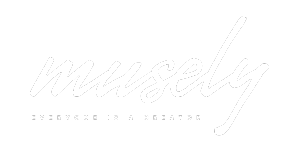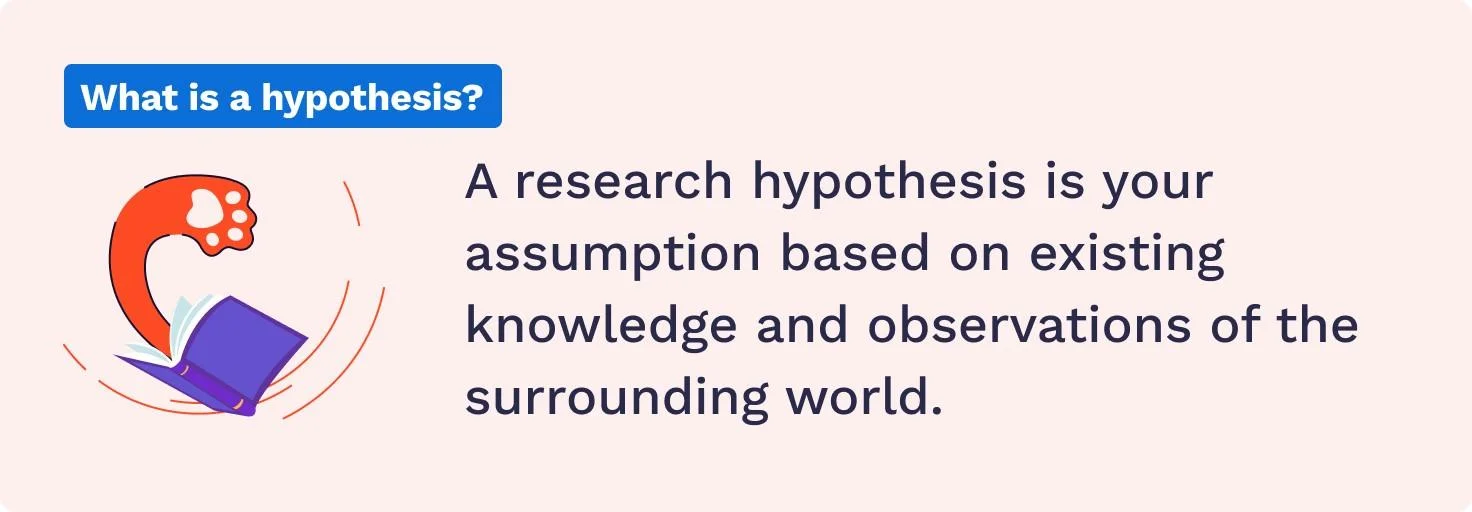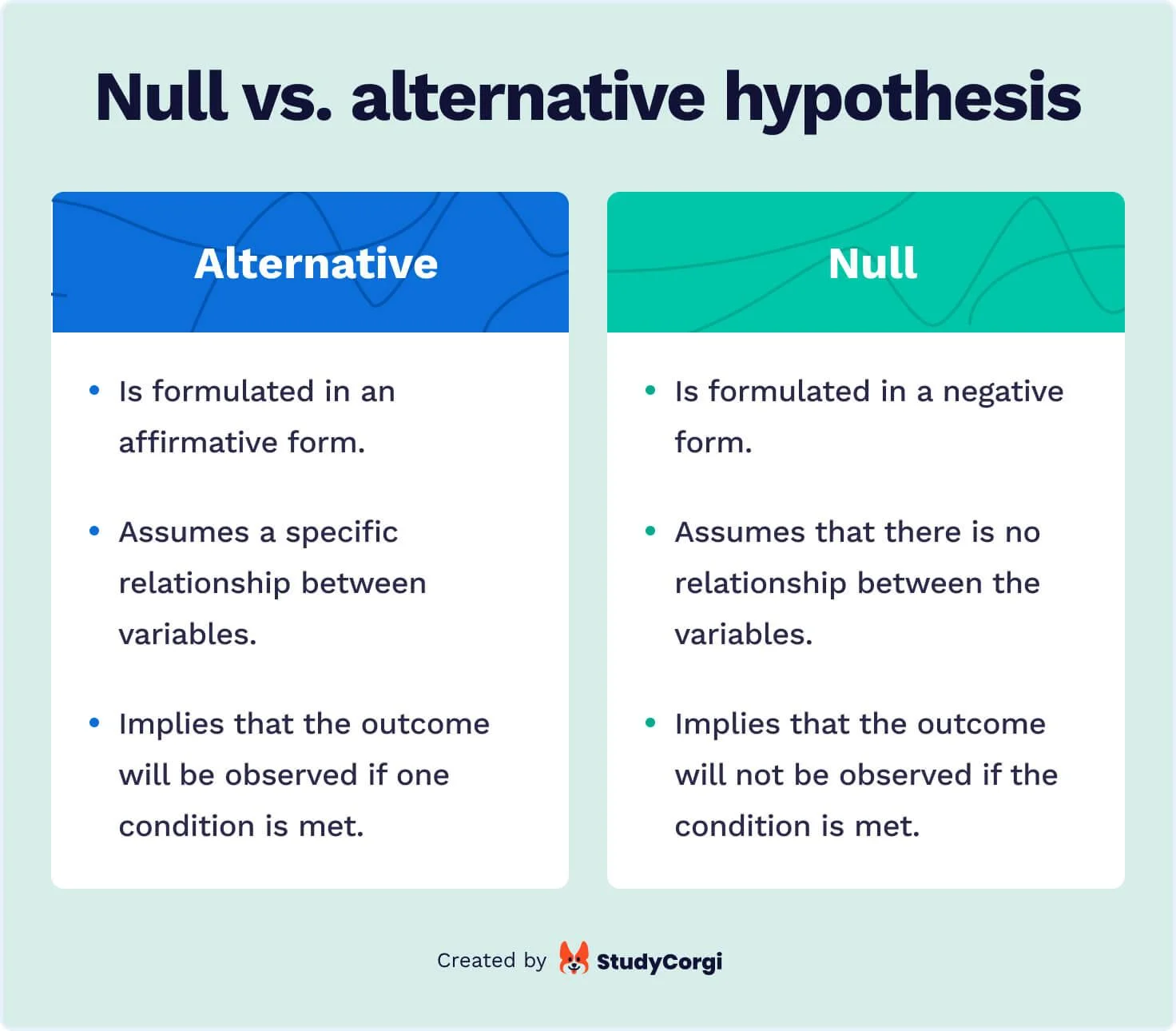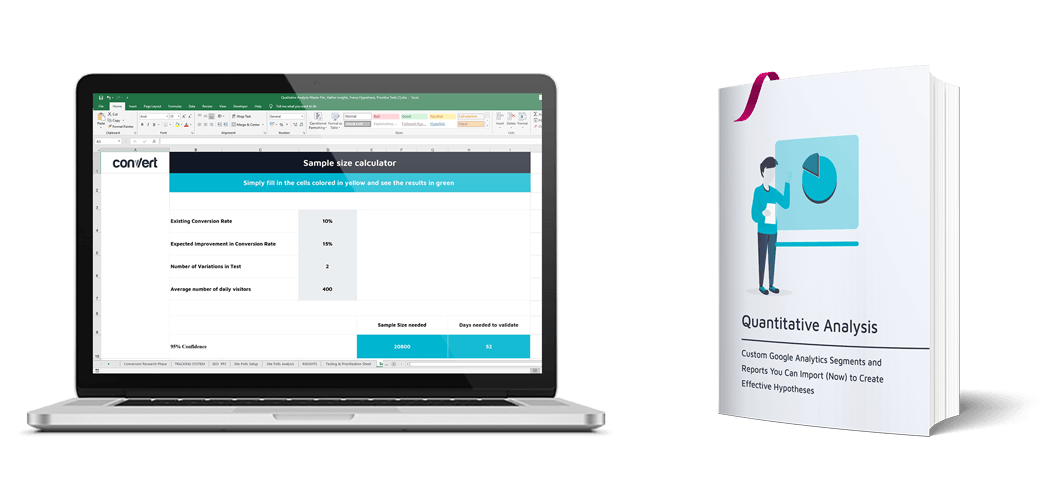Hypothesis Maker
The best free AI hypothesis maker to master the art of hypothesis creation with ease. Generate high-quality and accurate hypotheses in minutes.
- Convincing Pro
- Critical Pro
- Humorous Pro
- Informative Pro
- Inspirational Pro
- Passionate Pro
- Thoughtful Pro
- Worried Pro
- English (US)
- German (Germany)
- Italian (Italy)
- Japanese (Japan)
- Russian (Russia)
- Portuguese (Portugal)
- Hindi (India)
- Urdu (Pakistan)
- Arabic (Saudi Arabia)
- French (France)
- English (UK) Pro
- English (Australia) Pro
- English (Canada) Pro
- English (India) Pro
- English (Singapore) Pro
- English (New Zealand) Pro
- English (South Africa) Pro
- Spanish (Spain) Pro
- Spanish (Mexico) Pro
- Spanish (United States) Pro
- Arabic (Egypt) Pro
- Arabic (United Arab Emirates) Pro
- Arabic (Kuwait) Pro
- Arabic (Bahrain) Pro
- Arabic (Qatar) Pro
- Arabic (Oman) Pro
- Arabic (Jordan) Pro
- Arabic (Lebanon) Pro
- Danish (Denmark) Pro
- German (Switzerland) Pro
- German (Austria) Pro
- French (Canada) Pro
- French (Switzerland) Pro
- French (Belgium) Pro
- Italian (Switzerland) Pro
- Dutch (Netherlands) Pro
- Dutch (Belgium) Pro
- Portuguese (Brazil) Pro
- Chinese (China) Pro
- Chinese (Taiwan) Pro
- Chinese (Hong Kong) Pro
- Chinese (Singapore) Pro
- Korean (South Korea) Pro
- Finnish (Finland) Pro
- Greek (Greece) Pro
- Czech (Czech Republic) Pro
- Swedish (Sweden) Pro
- Norwegian (Norway) Pro
- Turkish (Turkey) Pro
- Polish (Poland) Pro
- Romanian (Romania) Pro
- Hungarian (Hungary) Pro
- Thai (Thailand) Pro
- Hebrew (Israel) Pro
- Indonesian (Indonesia) Pro
- Vietnamese (Vietnam) Pro
- Malay (Malaysia) Pro
- Tagalog (Philippines) Pro
- Swahili (Kenya) Pro
- Swahili (Tanzania) Pro
- Zulu (South Africa) Pro
- Xhosa (South Africa) Pro
- Amharic (Ethiopia) Pro
- Tamil (India) Pro
- Tamil (Sri Lanka) Pro
- Bengali (Bangladesh) Pro
- Bengali (India) Pro
- Punjabi (Pakistan) Pro
- Punjabi (India) Pro
- Marathi (India) Pro
- Telugu (India) Pro
- Kannada (India) Pro
- Gujarati (India) Pro
- Oriya (India) Pro
- Malayalam (India) Pro
- Urdu (India) Pro
- Persian (Iran) Pro
- Azerbaijani (Azerbaijan) Pro
- Ukrainian (Ukraine) Pro
- Belarusian (Belarus) Pro
- Catalan (Spain) Pro
- Basque (Spain) Pro
- Galician (Spain) Pro
- Slovak (Slovakia) Pro
- Lithuanian (Lithuania) Pro
- Latvian (Latvia) Pro
- Estonian (Estonia) Pro
- Bulgarian (Bulgaria) Pro
- Albanian (Albania) Pro
- Croatian (Croatia) Pro
- Slovenian (Slovenia) Pro
- Bosnian (Bosnia and Herzegovina) Pro
- Serbian (Serbia) Pro
- Macedonian (North Macedonia) Pro
- Montenegrin (Montenegro) Pro
- Maltese (Malta) Pro
- Irish (Ireland) Pro
- Welsh (United Kingdom) Pro
- Scots Gaelic (United Kingdom) Pro
- Icelandic (Iceland) Pro
- Luxembourgish (Luxembourg) Pro
- Afrikaans (South Africa) Pro
- Hausa (Nigeria) Pro
- Yoruba (Nigeria) Pro
- Somali (Somalia) Pro
- Tigrinya (Eritrea) Pro
- Kinyarwanda (Rwanda) Pro
- Sesotho (Lesotho) Pro
- Shona (Zimbabwe) Pro
- Sinhala (Sri Lanka) Pro
- Dhivehi (Maldives) Pro
- Burmese (Myanmar) Pro
- Lao (Laos) Pro
- Khmer (Cambodia) Pro
- Mongolian (Mongolia) Pro
- Tibetan (China) Pro
- Uighur (China) Pro
- Pashto (Afghanistan) Pro
- Dari (Afghanistan) Pro
- Nepali (Nepal) Pro
- Dzongkha (Bhutan) Pro
- Sesotho (South Africa) Pro
- Setswana (Botswana) Pro
- Seselwa Creole (Seychelles) Pro
- Mauritian Creole (Mauritius) Pro
- Haitian Creole (Haiti) Pro
- Greenlandic (Greenland) Pro
- Faroese (Faroe Islands) Pro
- Samoan (Samoa) Pro
- Tongan (Tonga) Pro

Switch to Advanced tools
Looking for Marketing specific AI tools? try our advanced AI Agents for your Marketing needs
Why Choose Hypothesis-Maker?
Unlock the potential of your research with Hypothesis-Maker. This tool is designed to help you generate clear, concise, and compelling hypotheses for any type of research.
- Formulate hypotheses that set a strong foundation for your research.
- Save time by generating hypotheses quickly and efficiently.
- Tailor the hypotheses to align with your specific research goals and methodologies.
How Does Hypothesis-Maker Work?
Simplify the hypothesis creation process with Hypothesis-Maker. Follow these simple steps to generate effective hypotheses:
1. Provide Your Input
Enter your value in the input box. The AI will interpret the input within the given context.
2. Generate
Click the "Generate" button to craft a compelling and well-structured response.
Use Cases of Hypothesis-Maker
Explore how Hypothesis-Maker can enhance your research across various fields and formats. Whether you're conducting scientific research, social studies, business analysis, or academic projects, this tool can help you create hypotheses that drive your research forward.
Scientific Research Develop hypotheses that guide your experiments and investigations. Hypothesis-Maker helps you outline clear and testable statements that can be empirically evaluated, ensuring your research is grounded in a solid theoretical framework.
Social Studies Generate hypotheses that address social phenomena and human behavior. The tool assists in formulating hypotheses that are relevant, significant, and researchable within the context of social sciences.
Business Analysis Create hypotheses that inform your business strategies and decisions. Use Hypothesis-Maker to develop statements that can be tested through market research, consumer behavior studies, and financial analyses.
Academic Projects Strengthen your academic writing with well-crafted hypotheses. Whether for theses, dissertations, or research papers, Hypothesis-Maker ensures your hypotheses are clear, concise, and aligned with your research questions.
Who Benefits from Hypothesis-Maker?
From researchers, analysts, to students, everyone can benefit from the Hypothesis-Maker tool.
Researchers For researchers, Hypothesis-Maker can help streamline the hypothesis formulation process, allowing you to focus more on data collection and analysis. By using this tool, you can ensure that your research is based on strong, testable hypotheses.
Analysts Enhance your analytical projects with robust hypotheses. Hypothesis-Maker helps analysts in fields like finance, marketing, and data science to develop hypotheses that guide their investigations and support data-driven decision-making.
Students Improve your academic research and writing skills with Hypothesis-Maker. This tool is particularly useful for students who are new to hypothesis formulation, providing guidance and support in creating strong and researchable statements for their projects and assignments.
Error message
Boost your productivity & creativity!
- 500+ tools to spark your creativity.
- 100+ languages, conquer the globe.
- 20+ tones & styles, find your perfect brand voice.
- No document or input limits, write forever!
- Priority support & early access to new features!
- Limited-time offer
Still hesitant? We offer 7-Day Money-Back Guarantee Without Question.
Elevate Every Aspect of Your Work
LogicBalls combines brainstorming, writing, analysis, and research in one powerful AI tool. Enhance your professional content now!
Hypothesis Maker Online
The Hypothesis Maker offers a streamlined approach to generating clear and precise hypotheses. This tool assists in formulating well-structured assumptions for various academic and research projects, ensuring accuracy and clarity.
Are you looking for an effective hypothesis maker online? Worry no more; try our online tool for students and formulate your hypothesis within no time.
- 🔎 How to Use the Tool?
- ⚗️ What Is a Hypothesis in Science?
👍 What Does a Good Hypothesis Mean?
- 🧭 Steps to Making a Good Hypothesis
🔗 References
📄 hypothesis maker: how to use it.
Our hypothesis maker is a simple and efficient tool you can access online for free.
If you want to create a research hypothesis quickly, you should fill out the research details in the given fields on the hypothesis generator.
Below are the fields you should complete to generate your hypothesis:
- Who or what is your research based on? For instance, the subject can be research group 1.
- What does the subject (research group 1) do?
- What does the subject affect? - This shows the predicted outcome, which is the object.
- Who or what will be compared with research group 1? (research group 2).
Once you fill the in the fields, you can click the ‘Make a hypothesis’ tab and get your results.
⚗️ What Is a Hypothesis in the Scientific Method?
A hypothesis is a statement describing an expectation or prediction of your research through observation.
It is similar to academic speculation and reasoning that discloses the outcome of your scientific test . An effective hypothesis, therefore, should be crafted carefully and with precision.
A good hypothesis should have dependent and independent variables . These variables are the elements you will test in your research method – it can be a concept, an event, or an object as long as it is observable.
You can observe the dependent variables while the independent variables keep changing during the experiment.
In a nutshell, a hypothesis directs and organizes the research methods you will use, forming a large section of research paper writing.
Hypothesis vs. Theory
A hypothesis is a realistic expectation that researchers make before any investigation. It is formulated and tested to prove whether the statement is true. A theory, on the other hand, is a factual principle supported by evidence. Thus, a theory is more fact-backed compared to a hypothesis.
Another difference is that a hypothesis is presented as a single statement , while a theory can be an assortment of things . Hypotheses are based on future possibilities toward a specific projection, but the results are uncertain. Theories are verified with undisputable results because of proper substantiation.
When it comes to data, a hypothesis relies on limited information , while a theory is established on an extensive data set tested on various conditions.
You should observe the stated assumption to prove its accuracy.
Since hypotheses have observable variables, their outcome is usually based on a specific occurrence. Conversely, theories are grounded on a general principle involving multiple experiments and research tests.
This general principle can apply to many specific cases.
The primary purpose of formulating a hypothesis is to present a tentative prediction for researchers to explore further through tests and observations. Theories, in their turn, aim to explain plausible occurrences in the form of a scientific study.
It would help to rely on several criteria to establish a good hypothesis. Below are the parameters you should use to analyze the quality of your hypothesis.
🧭 6 Steps to Making a Good Hypothesis
Writing a hypothesis becomes way simpler if you follow a tried-and-tested algorithm. Let’s explore how you can formulate a good hypothesis in a few steps:
Step #1: Ask Questions
The first step in hypothesis creation is asking real questions about the surrounding reality.
Why do things happen as they do? What are the causes of some occurrences?
Your curiosity will trigger great questions that you can use to formulate a stellar hypothesis. So, ensure you pick a research topic of interest to scrutinize the world’s phenomena, processes, and events.
Step #2: Do Initial Research
Carry out preliminary research and gather essential background information about your topic of choice.
The extent of the information you collect will depend on what you want to prove.
Your initial research can be complete with a few academic books or a simple Internet search for quick answers with relevant statistics.
Still, keep in mind that in this phase, it is too early to prove or disapprove of your hypothesis.
Step #3: Identify Your Variables
Now that you have a basic understanding of the topic, choose the dependent and independent variables.
Take note that independent variables are the ones you can’t control, so understand the limitations of your test before settling on a final hypothesis.
Step #4: Formulate Your Hypothesis
You can write your hypothesis as an ‘if – then’ expression . Presenting any hypothesis in this format is reliable since it describes the cause-and-effect you want to test.
For instance: If I study every day, then I will get good grades.
Step #5: Gather Relevant Data
Once you have identified your variables and formulated the hypothesis, you can start the experiment. Remember, the conclusion you make will be a proof or rebuttal of your initial assumption.
So, gather relevant information, whether for a simple or statistical hypothesis, because you need to back your statement.
Step #6: Record Your Findings
Finally, write down your conclusions in a research paper .
Outline in detail whether the test has proved or disproved your hypothesis.
Edit and proofread your work, using a plagiarism checker to ensure the authenticity of your text.
We hope that the above tips will be useful for you. Note that if you need to conduct business analysis, you can use the free templates we’ve prepared: SWOT , PESTLE , VRIO , SOAR , and Porter’s 5 Forces .
❓ Hypothesis Formulator FAQ
Updated: Nov 13th, 2024
- How to Write a Hypothesis in 6 Steps - Grammarly
- Forming a Good Hypothesis for Scientific Research
- The Hypothesis in Science Writing
- Scientific Method: Step 3: HYPOTHESIS - Subject Guides
- Hypothesis Template & Examples - Video & Lesson Transcript

AI Hypothesis Maker: Generate Research Hypotheses Fast

How to Use a Hypothesis Maker for Research
Input your research question, configure hypothesis parameters, review and refine results, what is a hypothesis maker: ai-powered research tool, hypothesis maker, instant hypothesis generation, multiple research fields support, a/b testing integration, clarity and precision focus, research question analysis, academic format compliance, what kind of content you can generate using hypothesis maker online, research study hypotheses, experimental test statements, statistical analysis predictions, academic project proposals, scientific theory testing, social research assumptions, what users say about musely hypothesis maker, frequently asked questions, how does the ai hypothesis maker ensure scientific accuracy, what are the steps to generate a hypothesis using this tool, can i use the hypothesis maker for different types of research, how reliable are the hypotheses generated by this tool, can i modify the generated hypothesis to better fit my research.
Rate Musely
4.91 (1273 Votes)
Start Creating with the Power of AI

Everyone is a creator.
- Name Generator
- Team Name Generator
- App Name Generator
- Blog Name Generator
- Brand Name Generator
- Privacy Policy
- Terms & Conditions
© Copyright 2024, All Rights Reserved by Musely

Hypothesis Maker
Ai-powered research hypothesis generator.
- Scientific Research: Generate a hypothesis for your experimental or observational study based on your research question.
- Academic Studies: Formulate a hypothesis for your thesis, dissertation, or academic paper.
- Market Research: Develop a hypothesis for your market research study to understand consumer behavior or market trends.
- Social Science Research: Create a hypothesis for your social science research to explore societal or behavioral patterns.
Yes, HyperWrite offers a limited trial for users to test the Hypothesis Maker. For additional access, you can choose the Premium Plan at $19.99/mo or Ultra for $44.99/mo. Use the code 'TRYHYPERWRITE' for 50% off your first month.
The Hypothesis Maker is powered by advanced AI models. These models analyze your research question and use their understanding of scientific research and hypothesis formulation to generate a clear, concise, and specific hypothesis that can guide your research process.
Yes, the Hypothesis Maker generates original hypotheses based on your provided research question. It uses advanced AI models to ensure that the generated hypothesis is unique, relevant to your research question, and can guide your research process effectively.
Yes, the Hypothesis Maker is versatile and can be used for a wide range of research types, including scientific, academic, market, and social science research. However, the output should always be reviewed and adjusted as necessary to fit the specific context and objectives of your research.
New & Trending Tools
Wedding toast generator, ai answer science questions, ai text analyzer and highlights.
Research Hypothesis Generator Online
- ️👍 Hypothesis Maker: the Benefits
- ️🔎 How to Use the Tool?
- ️🕵️ What Is a Research Hypothesis?
- ️⚗️ Scientific Method
- ️🔗 References
👍 Hypothesis Maker: the Benefits
Here are the key benefits of this null and alternative hypothesis generator.

🔎 Hypothesis Generator: How to Use It?
Whenever you conduct research, whether a 5-paragraph essay or a more complex assignment, you need to create a hypothesis for this study.
Clueless about how to create a good hypothesis?
No need to waste time and energy on this small portion of your writing process! You can always use our hypothesis creator to get a researchable assumption in no time.
To get a ready-made hypothesis idea, you need to:
- State the object of your study
- Specify what the object does
- Lay out the outcome of that activity
- Indicate the comparison group
Once all data is inserted into the fields, you can press the “Generate now” button and get the result from our hypothesis generator for research paper or any other academic task.
🕵️ What Is a Research Hypothesis?
A hypothesis is your assumption based on existing academic knowledge and observations of the surrounding natural world.

It also involves a healthy portion of intuition because you should arrive at an interesting, commonsense question about the phenomena or processes you observe.
The traditional formula for hypothesis generation is an “if…then” statement, reflecting its falsifiability and testability.
What do these terms mean?
- Testability means you can formulate a scientific guess and test it with data and analysis.
- Falsifiability is a related feature, allowing you to refute the hypothesis with data and show that your guess has no tangible support in real-world data.
For example, you might want to hypothesize the following:
If children are given enough free play time, their intelligence scores rise quicker.
You can test this assumption by observing and measuring two groups – children involved in much free play and those who don’t get free play time. Once the study period ends, you can measure the intelligence scores in both groups to see the difference, thus proving or disproving your hypothesis, which will be testing your hypothesis. If you find tangible differences between the two groups, your hypothesis will be proven, and if there is no difference, the hypothesis will prove false.
What Is the Difference between Prediction and Hypothesis?
A prediction is your forecast about the outcome of some activities or experimentation. It is a guess of what will happen if you perform some actions with a specific object or person. A hypothesis is a more in-depth inquiry into the way things are related. It is more about explaining specific mechanisms and relationships.
What Makes a Good Hypothesis?
A strong hypothesis should indicate the dependent and independent variables, specifying the relationship you assume between them. You can also strengthen your hypothesis by indicating a specific population group, an intervention period, and the context in which you’ll hold the study.
Null and Alternative Hypothesis
As a rule, hypotheses are presented in pairs in academic studies, as your scientific guess may be refuted or proved. Thus, you should formulate two hypotheses – a null and alternative variant of the same guess – to see which one is proved with your experiment.

The alternative hypothesis is formulated in an affirmative form, assuming a specific relationship between variables. In other words, you hypothesize that the predetermined outcome will be observed if one condition is met.
Watching films before sleep reduces the quality of sleep.
The null hypothesis is formulated in a negative form, suggesting that there is no association between the variables of your interest. For example:
Watching films before sleep doesn’t affect the quality of sleep.
⚗️ Creating a Hypothesis: the Key Steps
The development and testing of multiple hypotheses are the basis of the scientific method .
Without such inquiries, academic knowledge would never progress, and humanity would remain with a limited understanding of the natural world.
How can you contribute to the existing academic base with well-developed and rigorously planned scientific studies ? Here is an introduction to the empirical method of scientific inquiry.
Step #1: Observe the World Around You
Look around you to see what’s taking place in your academic area. If you’re a biology researcher, look into the untapped biological processes or intriguing facts that nobody has managed to explain before you.
What’s surprising or unusual in your observations? How can you approach this area of interest?
That’s the starting point of an academic journey to new knowledge.
Step #2: Ask Questions
Now that you’ve found a subject of interest, it’s time to generate scientific research questions.
A question can be called scientific if it is well-defined, focuses on measurable dimensions, and is largely testable.
Some hints for a scientific question are:
- What effect does X produce on Y?
- What happens if the intensity of X’s impact reduces or rises?
- What is the primary cause of X?
- How is X related to Y in this group of people?
- How effective is X in the field of C?
As you can see, X is the independent variable , and Y is the dependent variable.
This principle of hypothesis formulation is vital for cases when you want to illustrate or measure the strength of one variable’s effect on the other.
Step #3: Generate a Research Hypothesis
After asking the scientific question, you can hypothesize what your answer to it can be.
You don’t have any data yet to answer the question confidently, but you can assume what effect you will observe during an empirical investigation.
For example, suppose your background research shows that protein consumption boosts muscle growth.
In that case, you can hypothesize that a sample group consuming much protein after physical training will exhibit better muscle growth dynamics compared to those who don’t eat protein. This way, you’re making a scientific guess based on your prior knowledge of the subject and your intuition.
Step #4: Hold an Experiment
With a hypothesis at hand, you can proceed to the empirical study for its testing. As a rule, you should have a clearly formulated methodology for proving or disproving your hypothesis before you create it. Otherwise, how can you know that it is testable? An effective hypothesis usually contains all data about the research context and the population of interest.
For example:
Marijuana consumption among U. S. college students reduces their motivation and academic achievement.
- The study sample here is college students.
- The dependent variable is motivation and academic achievement, which you can measure with any validated scale (e.g., Intrinsic Motivation Inventory).
- The inclusion criterion for the study’s experimental group is marijuana use.
- The control group might be a group of marijuana non-users from the same population.
- A viable research methodology is to ask both groups to fill out the survey and compare the results.
Step #5: Analyze Your Findings
Once the study is over and you have the collected dataset, it’s time to analyze the findings.
The methodology should also delineate the criteria for proving or disproving the hypothesis.
Using the previous section’s example, your hypothesis is proven if the experimental group reveals lower motivational scores and has a lower GPA . If both groups’ motivation and GPA scores aren’t statistically different, your hypothesis is false.
Step #6: Formulate Your Conclusion
Using your study’s hypothesis and outcomes, you can now generate a conclusion . If the alternative hypothesis is proven, you can conclude that marijuana use hinders students’ achievement and motivation. If the null hypothesis is validated, you should report no identified relationship between low academic achievement and weed use.
Thank you for reading this article! Note that if you need to conduct a business analysis, you can try our free tools: SWOT , VRIO , SOAR , PESTEL , and Porter’s Five Forces .
Updated: Oct 11th, 2024
🔗 References
- What is and How to Write a Good Hypothesis in Research?
- Research questions, hypotheses and objectives – PMC – NCBI
- Developing the research hypothesis – PubMed
- Alternative Hypothesis – SAGE Research Methods
- Alternative Hypothesis Guide: Definition, Types and Examples

Create structured research hypotheses
AI Generators in Science and Research

🔬✍️ Formulate precise, well-founded hypotheses for your studies and scientific work. Explore the potential of your research!
Provide additional feedback
Discover the power of a well-formulated hypothesis with our Research Hypothesis Generator. In the world of scientific research, a solid, relevant hypothesis is the foundation on which any study is built.
🧪 Structured and precise
A well-defined hypothesis can guide your experiments and set the course for your discoveries. Our generator provides you with structured proposals based on your field and subject.
🌌 For all areas
Whether you're in biology, physics or the social sciences, we've got you covered. adapted our tool to meet the diversity of research needs.
💭 Refine Your Thinking
With our help, crystallize your idea into a clear, logical hypothesis. Each proposal is designed to stimulate your thinking and enrich your scientific approach.
Similar publications :

Popular generators:

Create Limitless with Generator AI
Immerse yourself in a world where every idea is instantly transformed into reality. Generator AI brings your boldest visions to life in the blink of an eye.
Use Our Free A/B Testing Hypothesis Generator . Never Miss Key Elements From Your Hypotheses. Get Big Conversion Lifts.
Observation, inadvertent impact.

Streamline Your Hypothesis Generation Research with Custom Templates the Pros Use.
Have questions about a/b testing hypotheses, what is a hypothesis.
Many people define a hypothesis as an “educated guess”.
To be more precise, a properly constructed hypothesis predicts a possible outcome to an experiment or a test where one variable (the independent one ) is tweaked and/or modified and the impact is measured by the change in behavior of another variable (generally the dependent one).
A hypothesis should be specific (it should clearly define what is being altered and what is the expected impact), data-driven (the changes being made to the independent variable should be based on historic data or theories that have been proven in the past), and testable (it should be possible to conduct the proposed test in a controlled environment to establish the relationship between the variables involved, and disprove the hypothesis - should it be untrue.)
What is the Cost of a Hastily Assembled Hypothesis?
According to an analysis of over 28,000 tests run using the Convert Experiences platform, only 1 in 5 tests proves to be statistically significant.
While more and more debate is opening up around sticking to the concept of 95% statistical significance, it is still a valid rule of thumb for optimizers who do not want to get into the fray with peeking vs. no peeking, and custom stopping rules for experiments.
There might be a multitude of reasons why a test does not reach statistical significance. But framing a tenable hypothesis that already proves itself logistically feasible on paper is a better starting point than a hastily assembled assumption.
Moreover, the aim of an A/B test may be to extract a learning, but some learnings come with heavy costs. 26% decrease in conversion rates to be specific.
A robust hypothesis may not be the answer to all testing woes, but it does help prioritisation of possible solutions and leads testing teams to pick low hanging fruits.
How is an A/B Testing Hypothesis Different?
An A/B test should be treated with the same rigour as tests conducted in laboratories. That is an easy way to guarantee better hypotheses, more relevant experiments, and ultimately more profitable optimization programs.
The focus of an A/B test should be on first extracting a learning , and then monetizing it in the form of increased registration completions, better cart conversions and more revenue.
If that is true, then an A/B test hypothesis is not very different from a regular scientific hypothesis. With a couple of interesting points to note:
- Most scientific hypotheses proceed with one independent variable and one dependent variable, for the sake of simplicity. But in A/B tests, there might be changes made to several independent variables at the same time. Under such circumstances it is good to explore the relationship between the independent variables to make sure that they do not inadvertently impact one another. For example changing both the value proposition and button copy of a landing page to determine improvement in click through or completion rates is tricky. Reaching a point where the browser is compelled to click the button could easily have been impacted by the value proposition (as in a strong hook and heading). So what caused the improvement in the dependent variable? Was it the change to the first element or the second one?
- The concept of Operational Definition is non-negotiable in most laboratory experiments. And comes baked with the question of ethics or morality. Operation Definition is the specific process that will be used to quantify the change in the value/behavior of the independent variable in the test. As an example, if a test wishes to measure the level of frustration that subjects experience when they are exposed to certain stimuli, researchers must be careful to define exactly how they will measure the output or frustration. Should they allow the test subjects to act out, in which case they may hurt or harm other individuals. Or should they use a non-invasive technique like an fMRI scan to monitor brain activity and collect the needed data. In A/B tests however, since data is collected through relatively inanimate channels like analytics dashboards, generally little thought is spared to Operational Definition and the impact of A/B testing on the human subjects (site traffic in this case).
The 5 Essential Parts of an A/B Testing Hypothesis
A robust A/B testing hypothesis should be assembled in 5 key parts:

1. OBSERVATION
This includes a clear outline of the problem (the unexplained phenomenon) observed and what it entails. This section should be completely free of conjecture and rely solely on good quality data - either qualitative and/or quantitative - to bring a potential area of improvement to light. It also includes a mention of the way in which the data is collected.
Proper observation ensures a credible hypothesis that is easy to “defend” later down the line.

2. EXECUTION
This is the where, what, and the who of the A/B test. It specifies the change(s) you will be making to site element(s) in an attempt to solve the problem that has been outlined under “OBSERVATION”. It serves to also clearly define the segment of site traffic that will be exposed to the experiment.
Proper execution guidelines set the rhythm for the A/B test. They define how easy or difficult it will be to deploy the test and thus aid hypothesis prioritization .

This is where you make your educated guess or informed prediction. Based on a diligently identified OBSERVATION and EXECUTION guidelines that are possible to deploy, your OUTCOME should clearly mention two things:
- The change (increase or decrease) you expect to see to the problem or the symptoms of the problem identified under OBSERVATION.
- The Key Performance Indicators (KPIs) you will be monitoring to gauge whether your prediction has panned out, or not.
In general most A/B tests have one primary KPI and a couple of secondary KPIs or ways to measure impact. This is to ensure that external influences do not skew A/B test results and even if the primary KPI is compromised in some way, the secondary KPIs do a good job of indicating that the change is indeed due to the implementation of the EXECUTION guidelines, and not the result of unmonitored external factors.

4. LOGISTICS
An important part of hypothesis formulation, LOGISTICS talk about what it will take to collect enough clean data from which a reliable conclusion can be drawn. How many unique tested visitors, what is the statistical significance desired, how many conversions is enough and what is the duration for which the A/B test should run? Each question on its own merits a blog or a lesson. But for the sake of convenience, Convert has created a Free Sample Size & A/B/N Test Duration Calculator .
Set the right logistical expectations so that you can prioritise your hypotheses for maximum impact and minimum effort .

5. INADVERTENT IMPACT
This is a nod in the direction of ethics in A/B testing and marketing, because experiments involve humans and optimizers should be aware of the possible impact on their behavior.
Often a thorough analysis at this stage can modify the way impact is measured or an experiment is conducted. Or Convert certainly hopes that this will be the case in future. Here’s why ethics do matter in testing.
Now Organize, Prioritise & Learn from Your Hypotheses.
Try convert experiences in free trial & access convert compass beta - our hypothesis management platform., always working to improve outcomes..
Start Your 15 -Day Free Trial Right Now. No Credit Card Required
Important. Please Read.
- Check your inbox for the password to Convert’s trial account.
- Log in using the link provided in that email.
This sign up flow is built for maximum security. You’re worth it!

IMAGES
VIDEO
COMMENTS
Use Cases of Hypothesis-Maker. Explore how Hypothesis-Maker can enhance your research across various fields and formats. Whether you're conducting scientific research, social studies, business analysis, or academic projects, this tool can help you create hypotheses that drive your research forward.
Use it for Free. Generate a hypothesis for your research or project in seconds! Use it for Free. Open main menu. Bots AI Videos New Photo Studio New Headshots New. ... 2 Once you've logged in, find the Hypothesis Maker template amongst our 200+ templates. 3 Fill out Research Topic. For example: The effect of light on plant growth ...
Hypothesis Maker Online. The Hypothesis Maker offers a streamlined approach to generating clear and precise hypotheses. This tool assists in formulating well-structured assumptions for various academic and research projects, ensuring accuracy and clarity. ... Our hypothesis maker is a simple and efficient tool you can access online for free. If ...
Generate clear, testable research hypotheses instantly with our free AI-powered Hypothesis Maker. Perfect for researchers and students. No login required.
The hypothesis maker is designed to be flexible and interactive. You can edit, refine, or combine multiple generated hypotheses to create the perfect fit for your research. The tool provides suggestions and frameworks, but you maintain full control over the final hypothesis.
Create a hypothesis for your research based on your research question. HyperWrite's Hypothesis Maker is an AI-driven tool that generates a hypothesis based on your research question. Powered by advanced AI models like GPT-4 and ChatGPT, this tool can help streamline your research process and enhance your scientific studies.
The Hypothesis Statement Generator helps you craft strong, clear, and testable hypothesis statements for your quantitative research. By entering your dependent and independent variables, as well as the predicted effect, this tool generates a hypothesis statement that clearly defines the relationship between the variables.
The hypothesis creator is 100% free, no hidden payments. 🔎 Hypothesis Generator: How to Use It? Whenever you conduct research, whether a 5-paragraph essay or a more complex assignment, you need to create a hypothesis for this study. Clueless about how to create a good hypothesis?
Discover the power of a well-formulated hypothesis with our Research Hypothesis Generator. In the world of scientific research, a solid, relevant hypothesis is the foundation on which any study is built. 🧪 Structured and precise. A well-defined hypothesis can guide your experiments and set the course for your discoveries. Our generator ...
The Convert A/B testing hypothesis generator is a free tool to create credible hypotheses that drive big conversion lifts. Use Our Free A/B Testing Hypothesis Generator. Never Miss Key Elements From Your Hypotheses. ... Proper observation ensures a credible hypothesis that is easy to "defend" later down the line. 2. EXECUTION